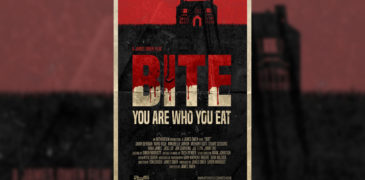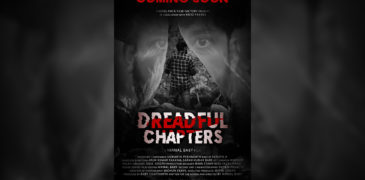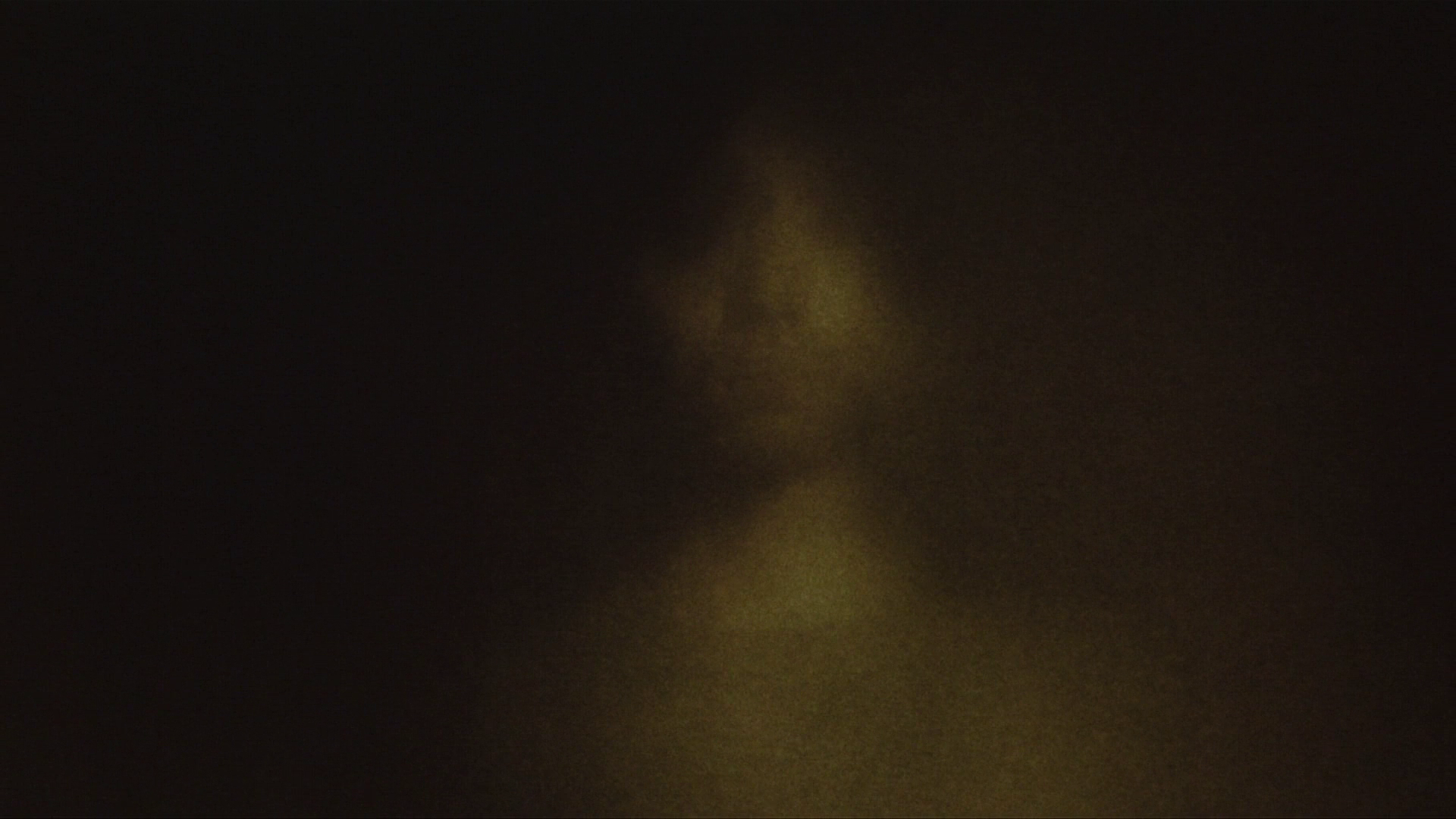
“People don’t really connect, you know.”
A sentiment that is often shared among film fans about some of the most eminent artists in the industry is that they were and/or are “ahead of their time”. One name that comes to mind for many of us is Kiyoshi Kurosawa, who although has produced works of various genres, is most notable for his contributions to horror. Kairo, amid other titles, was one of the first to make its way out of Japan and give rise to the J-horror boom which would unfortunately dwindle over a number of years. This particular film, however, is perhaps more relevant now than it was upon initial release.

Kairo begins by introducing a group of characters who work together at a plant shop. They are worried about their coworker Taguchi, who has been absent from work ever since he started working on an undisclosed computer disk. Upon visiting his apartment, Michi, who is our protagonist, discovers that Taguchi has actually been home this whole time, but is acting very strange and aloof. In the middle of their conversation, Taguchi walks into a separate room and hangs himself, leaving Michi utterly shocked when she finds him.
Michi, now in possession of the computer disk, inspects its contents with her coworkers and discovers that it contains an image of their deceased friend staring at his computer monitor, along with a ghostly face looking into his room from the second monitor on his desk. This sets off a number of mysterious occurrences, all of which having connections to computers, ghosts, and a website called “The Forbidden Room”. It is up to these characters to figure out what is going on and how to stop the slew of suicides and disappearances that have begun to plague the entire city.
Eventually, Michi meets up with Ryosuke, who is introduced earlier in the film as a student who is having issues with his new computer. When connecting to the internet, Ryosuke’s PC automatically accesses a random website on its own, where images of people in dark rooms illuminate from the screen. He procures the help of Harue, who is much more computer savvy than him, and together they too become involved in the mystery. Incidentally, Harue provides the viewers with numerous clues to an otherwise equivocal puzzle. It is she, after all, who asserts that the people they see on the website in question are as disconnected to reality as a ghost is to the living world.
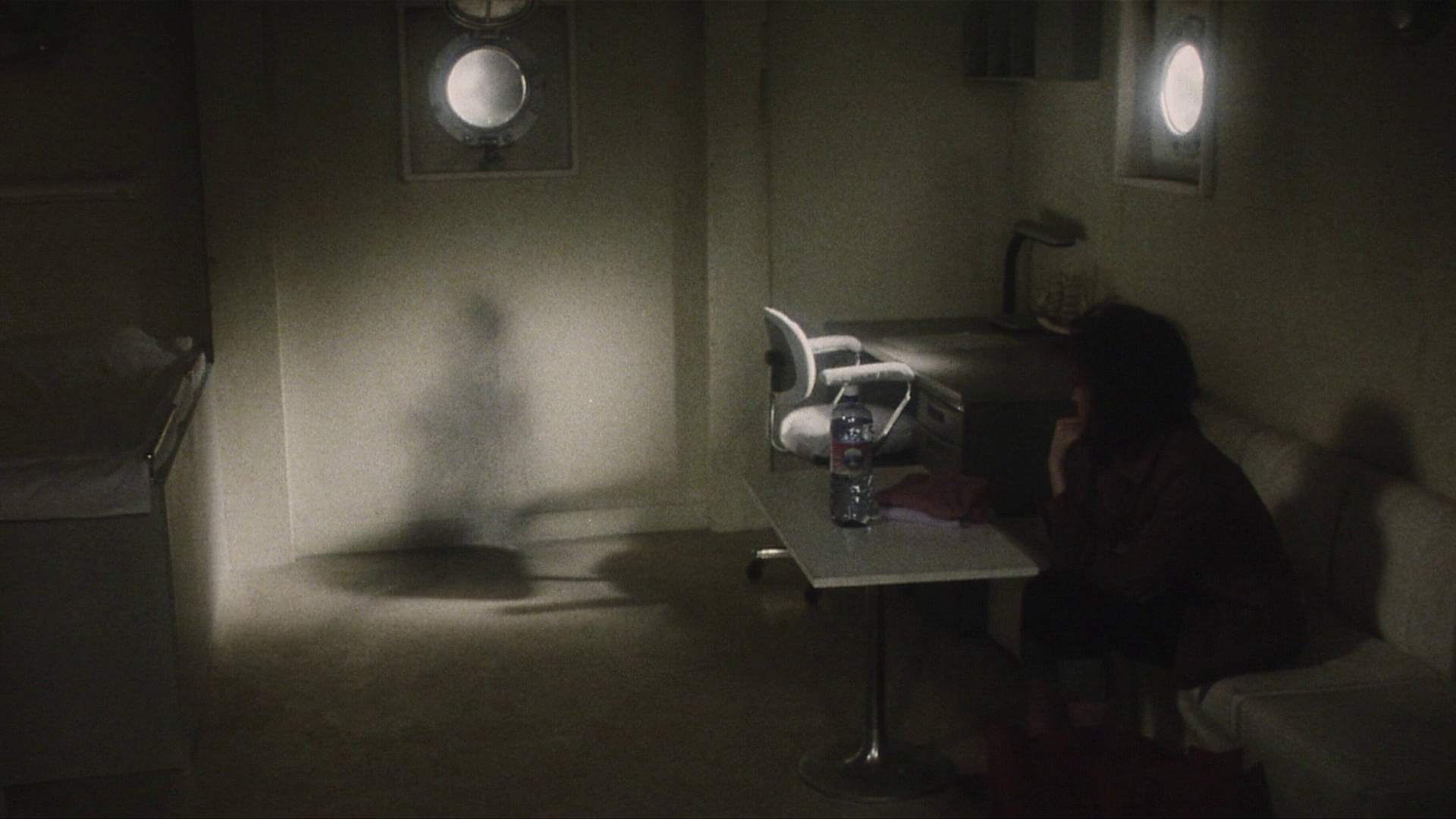
Although the birth of the internet was technically in 1969, the World Wide Web didn’t transform into what we know it as today until 1990. Kairo premiered in 2001, which means that Kurosawa had quite a number of years to experience the curiosities of the web, but it is unclear how he was able to predict the current state of modern human connection. Was it just a hunch? An educated guess? A metaphysical phenomenon? The turning point for human interaction occurred two years after the film was released with the introduction of Myspace, which wasn’t the first social media network, but it was definitely the most popular at the time as it offered relative levels of anonymity for those who wanted it.
I didn’t personally experience early social media networks such as Six Degrees or Friendster, but I was an active member on MySpace. I’m sure most of you can attest to the ‘innocence’, for lack of a better word, of the Myspace days. There was a stronger sense of conviviality and people seemed less concerned about becoming the next viral hit and more concerned with connecting with others. Social media has come a long way and we’ve become so inured to it that it’s almost impossible to imagine our current world without it. We are connected to others 24/7 via electromagnetic waves and are able to reach out to people whenever we want, which brings me to the thing that stood out to me most in the film.
At some point in the film, the audience, along with Ryosuke, is introduced to a dot simulation displayed on a desktop at the school. This simulation displays an array of dots floating around the screen. Harue explains that “if two dots get too close, they die, but if they get too far apart, they’re drawn closer.” The most obvious interpretation is that the dots represent people trying to get close to other humans. One might speculate that when we do this on social media, which is intended to keep us connected, we distance ourselves physically and sometimes even emotionally, presenting an affectation of ourselves instead of our truest physical selves. One might also speculate that in places where individuality is valued, human contact might affect said individuality. Once the two “dots” have touched, the individual self disappears.
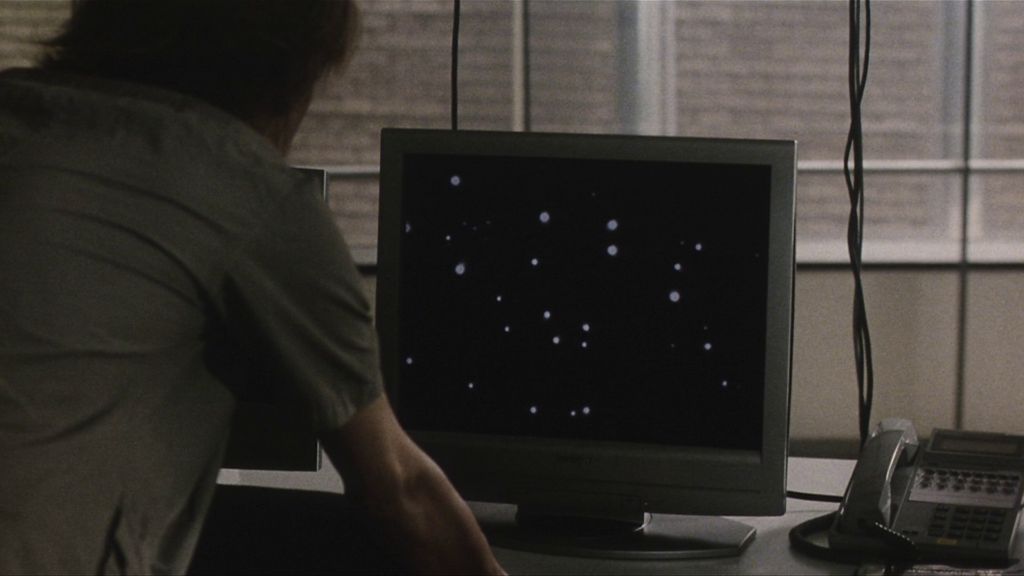
It would be incredibly inaccurate to say that social media in general is “bad”. On the contrary, I have made dozens of amazing friends online, and have witnessed plenty of online dating success stories. The thing is, human beings always want more. At some point our non-physical connections are simply not enough. This is one of the many factors that may contribute to the loneliness we may feel when unsuccessfully or even successfully connecting to people online. Studies have shown that this loneliness has gotten worse, which makes sense considering how much more convenient virtual contact can be. Maybe for every positive online connection there is one negative one as well.
The current state of social media alone has made Kairo more relevant than ever, but the state of the world as a whole this year makes it even more so. A global pandemic is not something we could have been mentally equipped for, and although the internet has been extremely helpful to us during this phase of our lives, it has also contributed to the sombre atmosphere and loneliness that has permeated our quarantine isolation. We relied heavily on the internet before this pandemic began but it seems to have reached a whole new level now, becoming our own personal “Forbidden Room”.
More Reviews:
Night at the Eagle Inn (2021) Film Review – Paranormal Hauntings
Night at the Eagle Inn was my first experience with the Bloomquist brothers, but it won’t be my last. If you are looking for a deep psychological thriller, wait…
Ugetsu (1953) Film Review – Feudal-Era Horror
It’s understandable why Japanese filmmakers focus so often on the feudal era in their horror cinema. It’s a setting so naturally horrific in the plight and pain of the peasant…
Dreams of Flesh (2024) Film Review – VR Therapy
Dreams of Flesh is a 2024 sci-fi horror, written and directed by Davide Pesca with additional writing from Fabrizio Pastura. The film is the third and final installment in the…
Romi (2023) Film Review – Ghost in the Machine [Blood in the Snow Film Festival]
Romi is a 2023 Canadian sci-fi horror, written by Susie Moloney, and directed by Robert Cuffley. Susie is most notable as a writer on the TV shows Blackstone (2015), and…
Bite (2022) Film Review – A Hair of the Dog that Bit Me
Bite is a 2022 British horror thriller, written and directed by James Owen, with additional writing from Tom Critch. Although a trained trauma surgeon, James started creating short films around…
Dreadful Chapters (2023) Film Review- Not so tasteful nor dreadful
There’s an inherent restlessness in the face of the unknown, perpetually stoking curiosity. Intentionally or otherwise, this very restlessness is what renders Dreadful Chapters a compelling viewing experience. Hailing from…

Your typical ghoul next door; film enthusiast, horror fanatic, J-horror nerd, aspiring horror host, and all around geek. Will likely be found cuddling with their cat and reading an old smelly book, or stuffing their face with popcorn at the cinema!
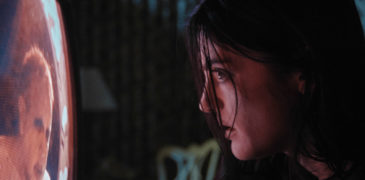
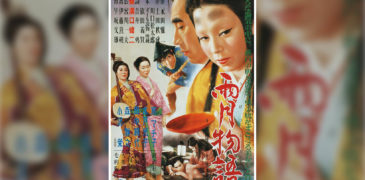
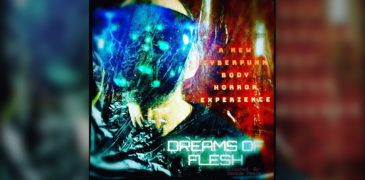
![Romi (2023) Film Review – Ghost in the Machine [Blood in the Snow Film Festival]](https://www.grimoireofhorror.com/wp-content/uploads/2023/11/Romi-cover-365x180.jpg)
